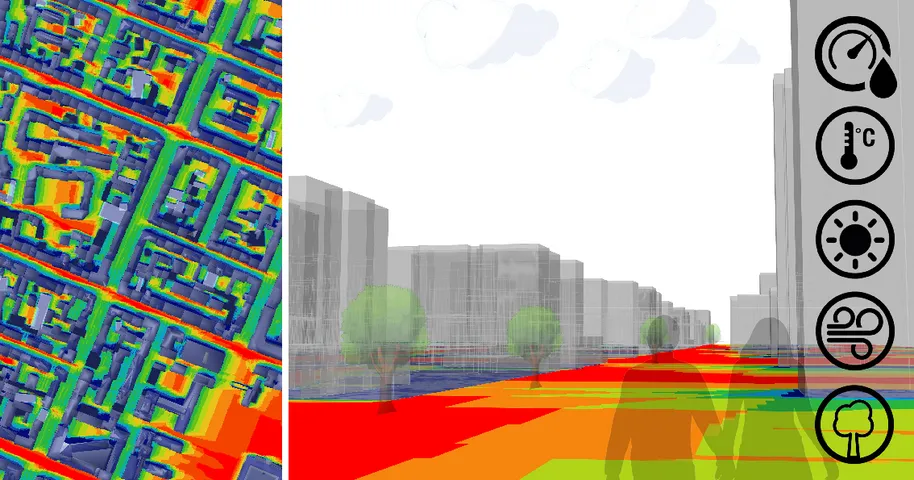
Urban Microclimate // Development of A Simulation Tool for Evaluation of Urban Microclimate, as well as Thermal Comfort for Outdoor Spaces
The last 20 years clearly show more frequency of extreme weather conditions with an increased summer heat waves in Central Europe. This is particularly evident in metropolitan cities, as the effect is intensified by contribution of Urban Heat Island Effect (UHI). Several studies prove that climate change in urban areas is about twice higher than rural areas. This has also an increasing influence on the health of the residents. Moreover the need for cooling demand of the buildings will increase, which in turn will require higher energy demand of the building sector. These changing conditions will intensely influence planning both in the building sector and urban development scenarios.
To support the planning processes, appropriate simulation tools are required. For this purpose, besides identifying the extreme hot or cold days, it is also crucial to predict the frequency of different extreme or moderate microclimate conditions over the year. As an example, longer heat periods might not be compensated by urban structures due to thermal mass effect where the stored heat during day keeps the street canyons warm during night without the possibility of cooling down to the same temperature as suburb areas. This dynamic process requires a tool able to conduct transient simulations over the desired time period.
The Urban Microclimate modelling project is a software development based on TRNSYS simulation engine, where the model will be able to assess the transient behavior of outdoor spaces and microclimate effects. The geometric building models based on CityGML data incorporates with TRNSYS through a visual programming interface in Rhinoceros. The Program takes into account the sky temperature and detailed shortwave and longwave solar radiation modelling. In this model, the effect of wind and evapotranspiration of vegetation is also taken into account for an accurate assessment of microclimate in urban scale.